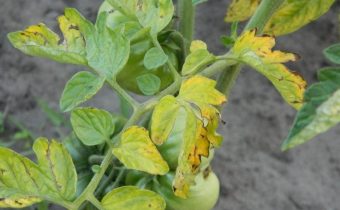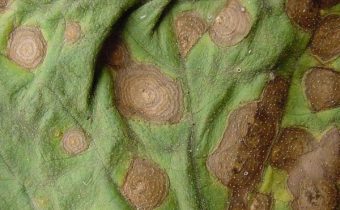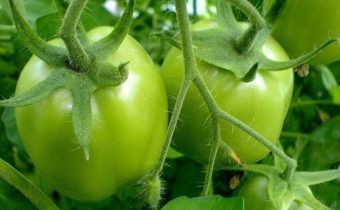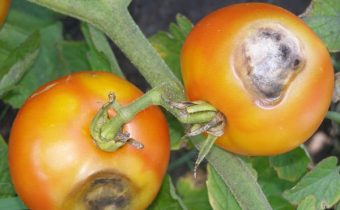Bacterial wilting tomato
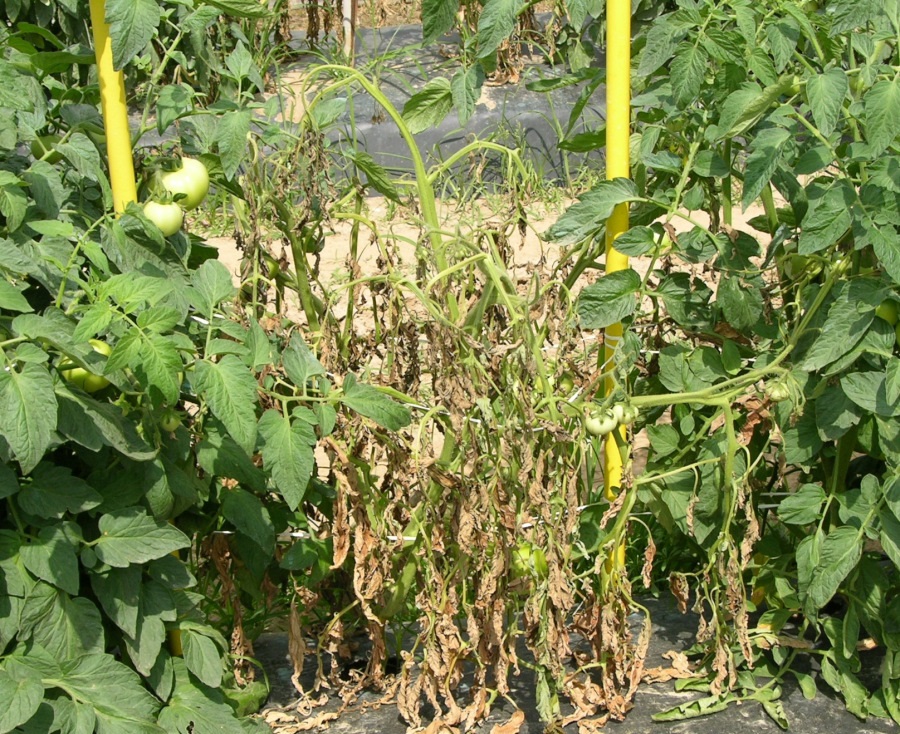
The harmfulness of bacteriosis is in the defeat of the vascular system of tomatoes, withering and destruction of the bushes. The disease is particularly prevalent in the southern regions, and tomato crop losses during infection reach 60% -99%. In conditions of positive temperature and high humidity, the infection develops rapidly, and the plant dies in a few days.
The reasons
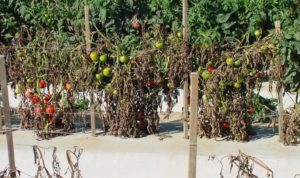
Malicious unicellular microorganisms live in the upper layers of the soil, affecting not only tomatoes, but also other crops. Infection of tomatoes occurs:
- through microcracks on the stem that have arisen as a result of transplanting or treating plants with tools;
- because of insect vectors and mice that ate infected weed grass;
- in the process of watering, if harmful microorganisms live in the water;
- when applied to work with plants infected with bacilli instrument;
- due to the introduction of an overdose of nitrogen-containing mineral fertilizers into the soil, the excess of which reduces the resistance of tomatoes to disease damage;
- with sudden changes in temperature during the day and at night.
Symptoms
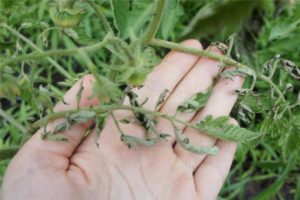
Unicellular bacteriosis microorganisms affect the entire vegetative mass of tomatoes. At the very beginning, the disease manifests itself on the lower leaves, which, for no particular reason, begin to wilt and then seize the entire upper part. Symptoms of fading:
- when the incision of the stem is observed a change in the color of conductive tissue. Elements from light yellow turn into brown, eventually forming empty spaces;
- with strong pressure on the stem, in the incised part, a gray-white liquid accumulated in the inflamed tissues is released;
- milk roots appear on the basal part of the stem;
- in the lower part of the plant the leaves begin to dry and curl;
- the plant slows down in growth, the stepsons do not grow, the fruits do not form.
Treatment
There is no full treatment for a bacterial disease. However, for the prevention of the development of harmful microorganisms, the drug Gamar is used, which will stimulate the active growth of tomatoes. For plant protection, 4 capsules of the preformed product should be dissolved in 9 l of water. Spray 1 time in 3-5 days.
Plants that are already infected with bacteria should be excavated and burned, so they cannot be cured. And in case of untimely neutralization of the affected bushes, the infection will spread to healthy tomatoes.
Prevention
To protect the tomatoes from the disease disease, preventive actions are carried out:
- disinfecting seeds and soil before sowing with a solution based on Vitaros;
- pick for cultivation only tomato hybridsresistant to infection;
- keep tomato areas clean, shedding all the weeds. Indeed, many herbs will attract insect carriers of bacilli that infect tomatoes;
- systematically process gardening tools with Chlorhexidine;
- carry out compulsory crop rotation of tomatoes, not growing them in the previous place 4-5 years;
- after harvesting, disinfect the soil with copper sulfate or Bordeaux mixture.
Resistant varieties
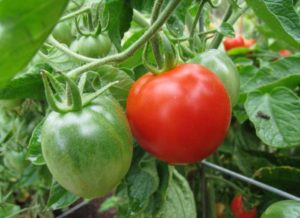
Choosing tomato hybrids, characterized by increased resistance to bacteriosis, it is possible to protect vegetables from infection.Reliable hybrids are:
- Yaki F1;
- Lark Seeds F1;
- Solersoso;
- 3402 F1;
- Safaix F1;
- Pink Clair;
- F1 President.
Properly picking up a variety, performing all the necessary agrotechnical techniques, you can protect plants from bacteriosis and get a good harvest of vegetables.


 (1 ratings, average: 4,00 from 5)
(1 ratings, average: 4,00 from 5)